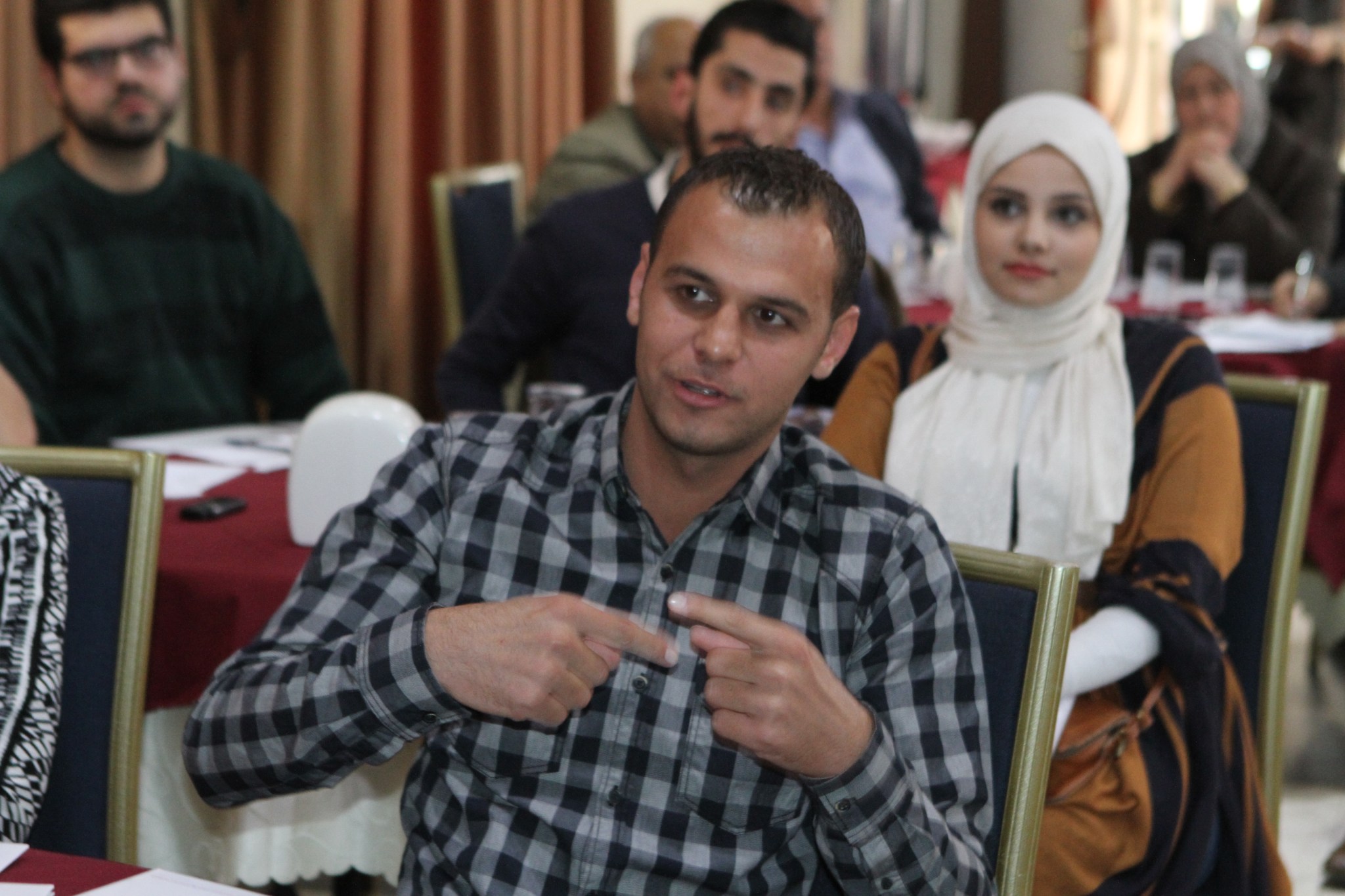Leveraging a New Legal Environment for Jordanians with Disabilities

In a functioning democracy, all citizens should have meaningful opportunities to make their voices heard and play a role in decision-making processes. A ubiquitous challenge that countries face to this is ensuring that marginalized populations are actively involved in the development process.
For many countries in transition, people with disabilities (PWD) – who represent 15 percent of the world’s population and an even higher percentage in many developing countries – face a multitude of barriers to actively participating in political processes. For instance, PWD frequently have limited information about their country’s changing laws and government structure due to a lack of accessible civic education materials and can’t participate easily in elections due to insufficient accessible polling stations. Moreover, discriminatory social norms often make able-bodied, neurotypical individuals unwilling to recognize people with disabilities as equals who deserve a say in the political decisions that affect their lives.
In Jordan, IRI is working to combat the political marginalization of people with disabilities through our Persons with Disabilities Empowerment Program. Started in 2016 with funding from the U.S. Agency for International Development, the program gives people with disabilities, their aides and activists skills to advocate for equal rights in their communities. This program is based on IRI and the U.S. government’s recognition that a democracy cannot thrive without active participation of all parts of society in civic and political life.
Since Jordan ratified the United Nations Convention on the Rights of Disabled Persons (CRPD) in 2008, the government has made progress in ensuring that national laws align with the convention, including passing a law that broadened the definition of disability and introduced provisions to ensure PWD rights in May 2017. After equipping PWD and their allies with strategies to engage with candidates as they campaigned for the August 2017 local elections, IRI has expanded the program to three new cities and launched a training series in October.
In the lead up to International Day of Persons with Disabilities last month, IRI launched its PWD Empowerment Program throughout the country, including Tafileh in the south, Madaba in the center and Irbid in the north. During the program launch in October, PWD and their allies expressed their top concerns and challenges and IRI sought to understand the unique needs in each city in order to tailor future assistance.
Following this, in November, IRI held two workshops in each city. Participants took part in collaborative discussions on their role in their communities, how to improve it and the importance of combatting lack of understanding and negative stereotypes through awareness campaigns. IRI also leveraged volunteer trainers from the Eduardo Frei Foundation (EFF) – a democratic development organization affiliated with the Dutch Christian Democratic Party – to give participants access to international best practices on advocacy and engaging government officials. Participants were eager to develop advocacy action plans and brainstorm the top problems that need to be addressed.
Through these sessions, IRI provided an opportunity for more than 100 people with disabilities, their aids and activists to equip themselves with civic education and advocacy skills to engage local leaders and advocate for equal rights.
Top